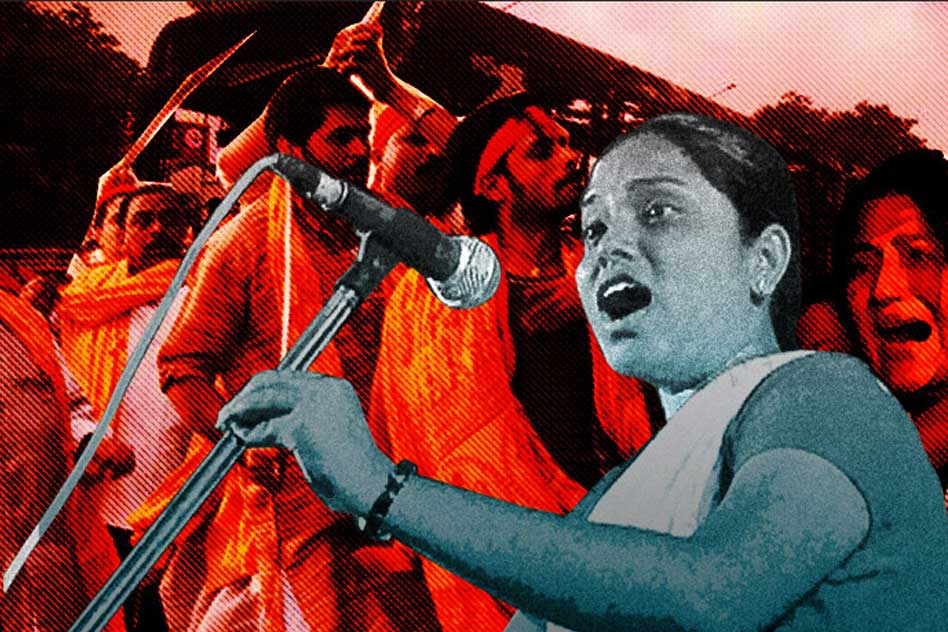
Activists Who Were Jailed For Singing Get Bail After Spending Four Years In Jail
5 Jan 2017 10:05 AM GMT
Three members of the cultural group Kabir Kala Manch were released on bail by the Supreme Court after they spent nearly four years in prison.
Who are the Kabir Kala Manch?
The Kabir Kala Manch (KKM) is a Pune-based cultural group which traces its beginnings to the 2002 Gujarat riots. A diverse group of students, working class people, and activists, the KKM aims to spread an anti-caste and a pro-democracy message through music, poetry, and theatre.
Their language is considerably political and controversial. Atrocities against Dalits, crimes against women, exploitation of tribals, casteism, terrorism, Hindu-Muslim riots – all of these are topics of discussion for the KKM. They write, produce, and perform their work independently. They regularly perform and conduct workshops in schools and colleges; they engage in street plays and performance poetry to spread their message.
Why were they arrested?
The three members – Sachin Mali, Sagar Gorkhe and Ramesh Gaichor – were arrested in 2013 under the Unlawful Activities (Prevention) Act. Authorities alleged that their music was sympathetic to Naxalism and the Maharashtra Anti-Terrorism Squad (ATS) accused them of propagating ‘objectionable’ literature.
In 2011, the Maharashtra ATS arrested KKM member Deepak Dengle and charged him under the Unlawful Activities (Prevention) Act. Other KKM members went into hiding at this point of time. Dengle was later granted bail by the Mumbai High Court. In April 2013, members of the KKM came out of hiding and organised a satyagraha outside the State Assembly. They were duly arrested.
Among the arrested was Sheetal Sathe, one of the lead singers of KKM. Sathe is the wife of Sachin Mali (who was among the three released this week). Sathe was eight months pregnant when the Mumbai Sessions Court denied her bail on 4 June 2013. Thankfully, the Mumbai High Court granted her bail later that same month on humanitarian grounds. However, her husband and two others remained behind bars for three years and ten months.
The Unlawful Activities (Prevention) Act
The Unlawful Activities (Prevention) Act is one of the most controversial legislations passed by the Indian Parliament. It was enacted in 1967 and has been amended several times since its inception. It has been used against writers and artists, at times along with India’s sedition law – Section 124(A) of the Indian Penal Code. Proponents of the law argue that the threat of terrorists and secessionists demands strict anti-terrorism legislation; opponents of the law criticise it as poorly-defined and brand it a threat to freedom of expression and prone to authoritarian misuse.
KKM’s reaction
Commenting on the SC decision, senior advocate Rebecca John, who appeared for the accused, told The Hindu, “I believe there is no case against them, and the prosecution has deliberately dragged its feet when it comes to the trial. It’s been over four years since they were arrested, and only the first witness of 174 is being examined at the moment. All these factors were taken into account by the apex court while granting bail.”
Sheetal Sathe said, “I would like to express my gratitude for the Supreme Court’s decision and thank the untiring efforts of our lawyers and various progressive outfits, activists and especially the KKM’s Defence Committee. The decision is a resounding victory for freedom of speech and democracy.”
“We had full confidence in the Supreme Court’s verdict and are thankful for it,” Deepak Dhengle said. “We knew that the police’s claims that they had conclusive proof would not hold up. But at the same time, we expected the bail to have come through much sooner.” He added that it was disturbing that someone could be arrested and jailed just for distributing literature.
The Logical Indian’s take
There can be no doubt that freedom of expression is vital to our survival as a functional democracy. At the same time, terrorist activities have to be countered with effective legislation. The two things should be possible without allowing space for mass misuse of the law, curtailing of free speech, and imprisonment of poets and artists.
Sachin, Sagar and Ramesh have lost precious years of their lives; Sachin has also missed out on the first three years of his child’s life. The unnatural progression of the case in question and the controversial nature of the law under which the three poets were imprisoned are extremely important factors.
Additionally, the lack of popular outrage over the issue is very telling. This is an issue which demands more debate, deliberation and scrutiny. The future of the case is still unclear – but we must take it upon ourselves to monitor the progress of the same and protest if freedom of expression is attacked again. An attack on the right to free speech of one of us is an attack on all of us.
 All section
All section













